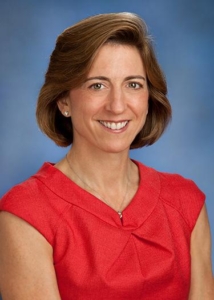 By Melissa J. Anderson (New York City)
By Melissa J. Anderson (New York City)
At just 36, Paula Anderson, a partner in Shearman & Sterling’s litigation practice, has already earned a national reputation, having been named to Crain’s NY Business Magazine’s “40 Under 40” list and having received the National Organization for Women’s 2012 Women of Power and Influence Award.
It is not lost on her that these are significant achievements for an African American woman in an industry where diversity is still too rare.
“I’ve been interested in diversity in the legal industry since I began my career, and it still concerns me,” she said. “I go to industry functions and there are hundreds of attorneys there, and I am often the only person of color or maybe one of about five out of hundreds. I’ve always been driven to find a way we in the legal industry can address that, to better reflect the students graduating from law school.”
Anderson is doing her part at Shearman & Sterling. She is a member of the firm’s Diversity Committee, has been active in the firm’s WISER (Women’s Initiative for Success, Excellence and Retention) inclusion network, and was the first chairperson of the firm’s African American inclusion network BLAQUE (Black Lawyers Aligned in the Quest for Excellence).
“Through our various inclusion networks, we aim not just at recruiting diverse lawyers but promoting them as well,” she explained. “At the mid-level we lose a number of these lawyers. We see too many people opt out or pursue other careers. It is an industry-wide issue.”
Anderson adds that Shearman & Sterling’s inclusion networks are designed to enable people to advance by providing two key factors for success in a legal career: mentoring and programs focused on business development and networking. She has been very open in talking with young lawyers about the stereotypes that women and people of color must contend with in their line of business.
“Access to the pathways to success also means dealing with some of the unconscious biases that may exist,” she said. “For example, there are certain preconceptions some people have with respect to women not having boardroom presence or not being aggressive enough. Particularly in the litigation field, there are certain ideas of what a successful and capable litigator should look like, and that’s often something akin to a Perry Mason.”
That’s why visibility is so important for successful role models, she added. “We need examples of women who are successful, who have their own unique style and are being themselves, and are able to relate to a board or a jury. We are making some progress in addressing these types of challenges.”
 By Melissa J. Anderson (New York City)
By Melissa J. Anderson (New York City)








